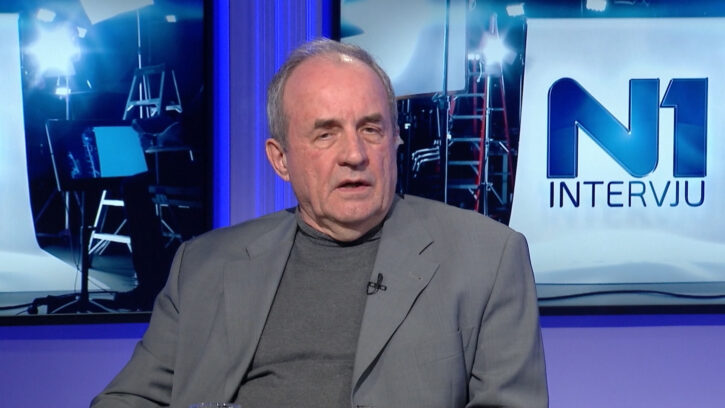
Recently, French President Emmanuel Macron described Bosnia as a "time bomb" and expressed deep concern for Europe over Bosnian returnees from Syria, but in reality, the real threat in the country is not religious extremism but internal ethnic divisions and the destabilizing role of external factors, writes prominent US analyst at the Centre for European Policy Analysis Janusz Bugajski.
Bosnia's main problem, Bugajski wrote, is that the Serbian and Croatian authorities who have not fully accepted the country as a legitimate and sovereign multi-ethnic state.
This distinguished US analyst also cites the increasing influence of Russia but notes that the departure of German Chancellor Angela Merkel and the UK's exit from the EU will contribute to the lack of support for an integrated Bosnian state, especially if the French President continues with his “indulgent approach” to Vladimir Putin. With the negative role of its neighbours, Bosnia's stability depends solely on the US, Bugajski warned, who also proposed the appointment of a new US representative for Bosnia, which would focus on three things:
– Building a modern state with reformed electoral legislation in line with EU standards, where ethnic identity would not prevail over the civic one, in the race for positions,
– The special representative would focus on building legitimate institutions where the rule of law must ensure the separation of the judicial system from political interests,
– The consolidation of steps towards Bosnia's NATO membership because the Reform Program, recently signed by the three-member Presidency, is essentially the country's first Annual National Plan (ANP) which will position Bosnia on the path to NATO membership.
Speaking to N1, Bugajski said:
“The special representative should deal with issues between entities, constitutional issues, election law, investments, etc.”
But Europe's interest is weakening, which is why a stronger US role is needed.
Speaking about the reasons for a new US representative who would work side-by-side to Matthew Palmer, who was named US Special Representative for the Western Balkans by the decision of the US Secretary of State, Bugajski said: “he is necessary so he would address the specific problems in Bosnia.”
The US analyst also said that Moscow plays a significant role in defending Bosnia's “quasi-separatist” entity of Republika Srpska (RS) on the international scene, and uses the Balkans as a strategic tool to undermine its connection with the West through the RS and nationalists in the Croat Democratic Union (HDZ BiH).
Trapped in the middle, Bosniaks could also be radicalized, through secular nationalism, and this is the reason why the US and its allies must act more decisively.
While Bugajski believes that Bosnia's stability depends solely on the US, Balkan Investigative Reporting Network's (BIRN) regional editor Srecko Latal said that the US foreign policy, even with respect to the Western Balkans, is unclear at the moment. On the contrary, given the existing problems on the global scene and the weakening of the EU, Latal concludes that stability should be sought first and foremost in internal relations and then amongst each other.




